Trinity approved as distribution site for COVID-19 vaccines
Approval marks next big phase in the school’s COVID response
Maria Zaharatos, Taylor Condron, and Wren Ramos studying in Coates student center
With COVID-19 vaccinations becoming more available to the public, Trinity has been making plans on how to distribute the vaccine to members of the Trinity community. Trinity was recently approved to serve as a distribution site through Metro Health, meaning that vaccinations will be available to Trinity faculty and staff and dependents, emeriti faculty and dependents, and students.
“Now we just wait for the state of Texas to allocate vaccines to us,” said Tess Coody-Anders, Vice President For Strategic Communications and Marketing. “Our understanding is that the state makes those decisions on a weekly basis, and they do that based on the number of vaccines that the federal government sends to them.”
Becoming a distribution site does not mean that Trinity will immediately be able to vaccinate all members of our community, especially without knowing how many doses we will receive at a time. Said Coody-Anders, “Right now, the state of Texas has mandated that the following individuals get the vaccine first: individuals who are 65+, frontline and end-of-line health care workers, so anybody who interacts with the public in a healthcare setting, and individuals who are 16+ in age and have an underlying chronic condition.”
According to Coody-Anders, while we wait for doses to become available to Trinity, “we’re just making sure we’ve got logistics down because there’s a lot to it.” Vaccines have to be stored in a certain way, administration of the vaccine and the logistics around the day of actual vaccination have to be reported to the state, and people have to be monitored for 10 or 15 minutes after they get the vaccine.
Distribution of the vaccine is expected to look pretty similar to what we have in place for mass testing. Said Coody-Anders, “Maybe since it’s already set up for testing, maybe a great site to just swap into a vaccination site could be Laurie auditorium, because we’d have lots of seating where we can monitor people.”
University Physician Marcy Youngdahl called the vaccine the next key phase of Trinity’s COVID response. “This vaccine does protect against severe and moderate cases of COVID-19. It protects against hospitalization and death. It was very successful in the clinical trials and doing that. And so we want to be able to deliver this to our population, because it’s going to be critical to protecting everybody.”
She continued, “As far as operational changes, it’s too soon to make operational changes, even if we get the vaccine to the majority of our population, because we are only a subset of our community as a whole. So in order to change masking and things like that, we really would need more of the community herd immunity through vaccination to be achieved.”
Coody-Anders hopes that the vaccine will allow for some change in the upcoming fall semester. “The optimistic scenario is that most of us are vaccinated, and therefore, you know, people may still get COVID, but it won’t be very serious. And we’ll just need to manage it the way we do the flu or anything else on campus.” She mentioned the possibility of requiring the COVID vaccine next semester. “When and if that decision is made, it will be communicated in plenty of time to students. So that if that’s not something you’re interested in, you can make, you know, informed decisions. And of course, we would not require it if it was not widely available.”
Youngdahl recommends the vaccine to everyone. “Once it’s your turn to receive the vaccine, please receive the vaccine because it’s going to be our best chance, our best shot, sorry for the pun, to really get back to some normal living.”
“It has gone through a large clinical trial and has been proven to be safe. They’re still gathering data through the people that are being vaccinated now under that emergency use authorization, and we still are not seeing adverse reactions that would make the vaccine considered less safe,” she assures. “I weigh out the risk of COVID-19 infection, you know, with hospitalization, death, chronic fatigue, you know, and I look at the risk of vaccination, and I feel for me personally, that that’s a no brainer. This vaccine gives me what I want, which is the protection from that illness.”
There are a number of resources that students can take advantage of if they have any questions or concerns about the vaccine. For on-campus resources, students can reach out to health services and the COVID clinic. The San Antonio Metropolitan Health District’s and CDC’s websites are additional resources that have the latest information on the vaccine.
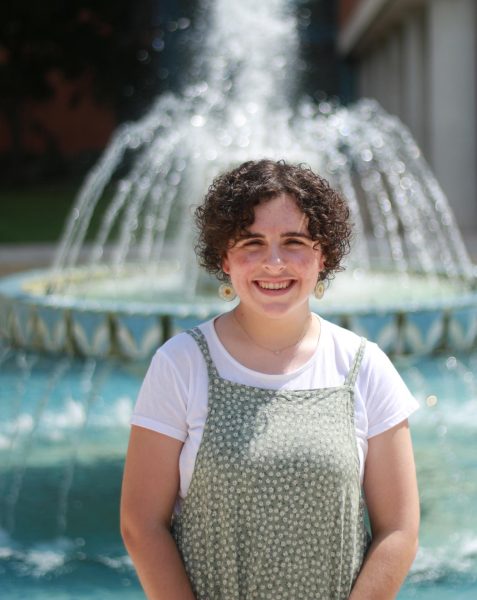
Hello! My name is Sarah, and I'm a senior from Nashville, TN majoring in communication and Spanish with a minor in history. I've been with the Trinitonian...
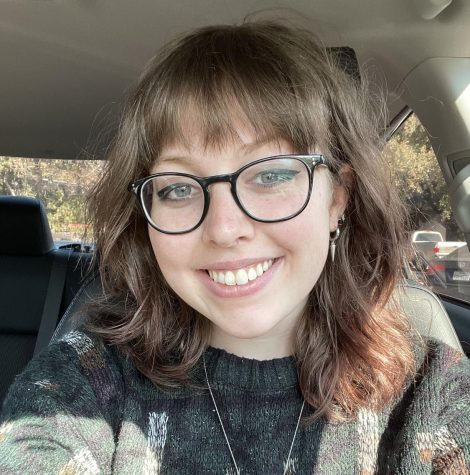
My name is Claire Sammons and I am an Anthropology and Communications double major. I have worked for the Trinitonian since fall of 2020. I became a photographer...

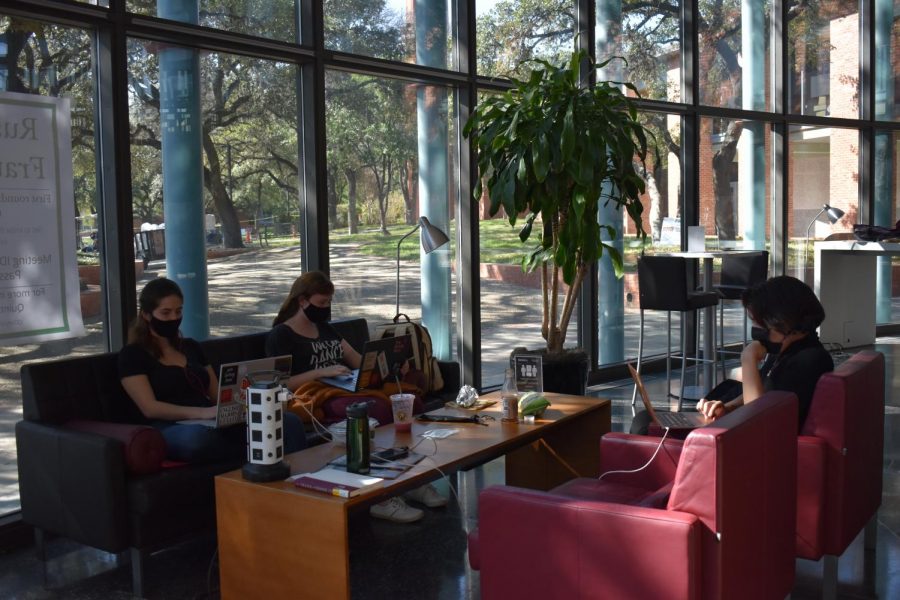
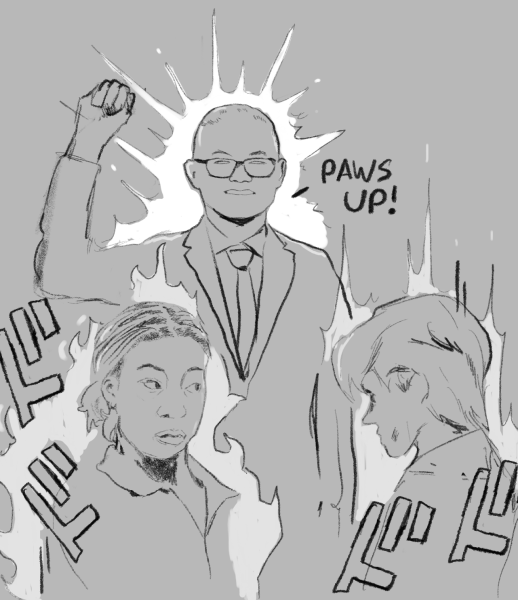



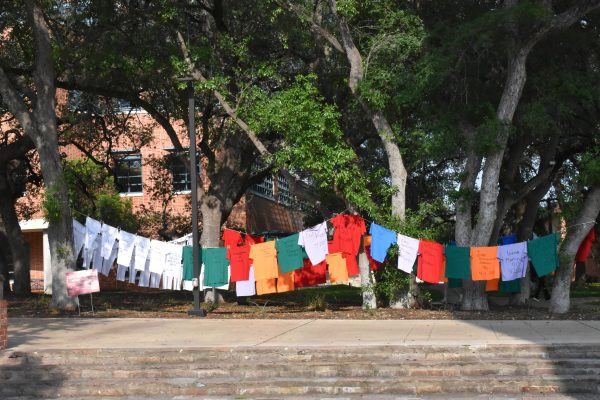
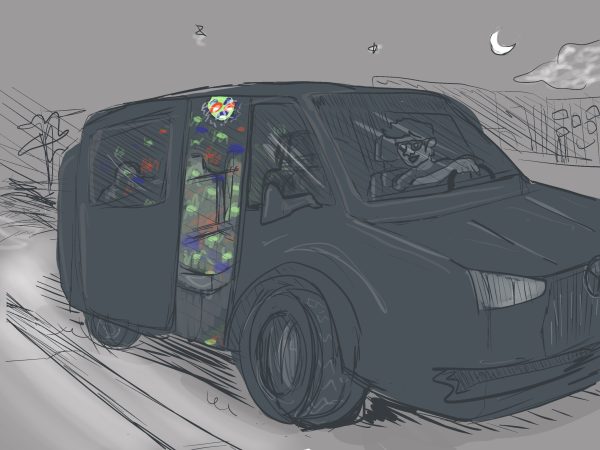
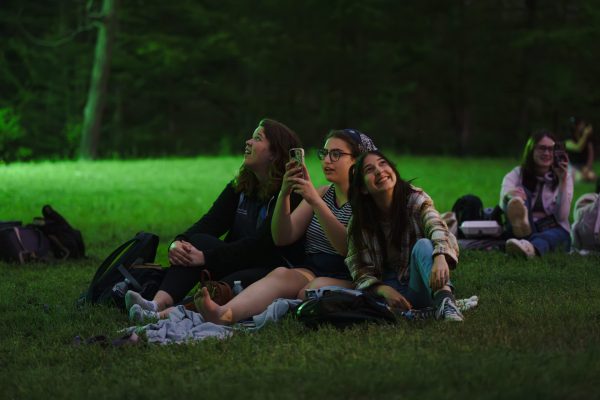

Mary Love • Feb 11, 2021 at 8:15 am
Will contracted staff & spouse be included in this?